0 ความคิดเห็น
0 เเชร์
100 ครั้ง

ไดเรกทอรี
สำราวจพัทยาโซเชียล สังคมออนไลน์ของพัทยาและพื้นที่ใกล้เคียง
-
กรุณาเข้าสู่ระบบเพื่อกดถูกใจ แชร์และแสดงความคิดเห็น!
-
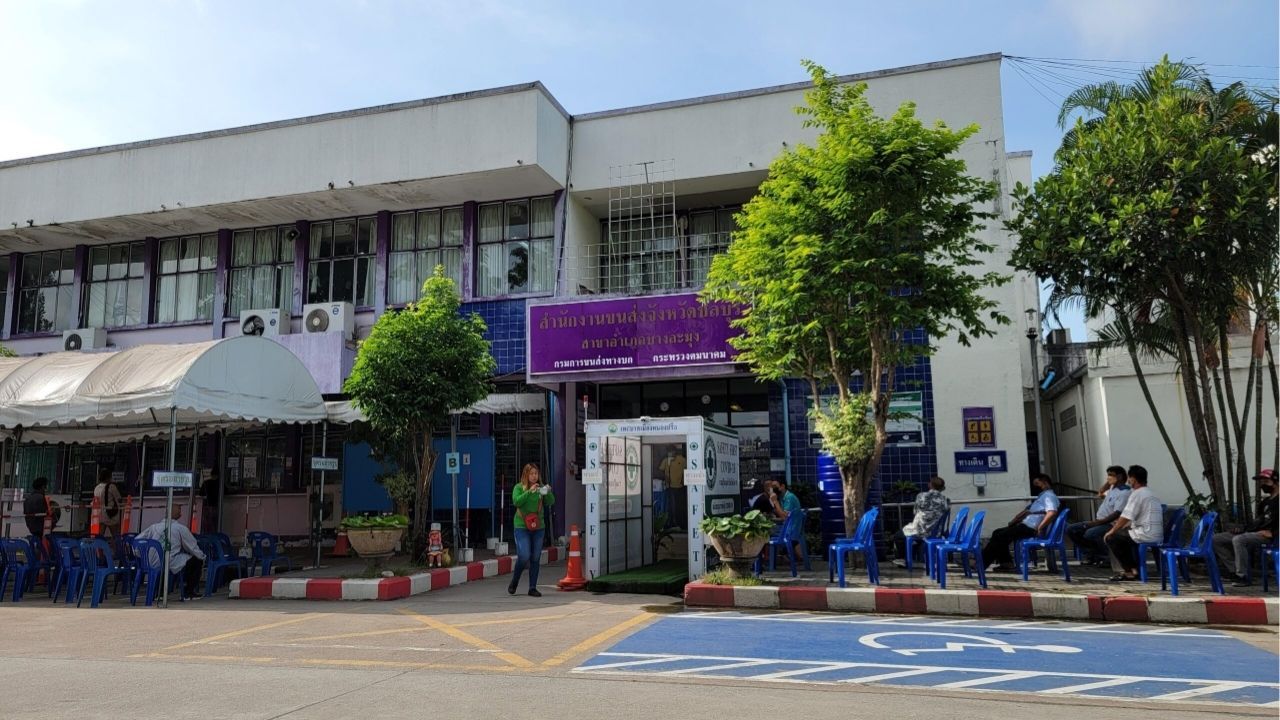 THETHAIGER.COMPattaya expats rattled by driving licence clampdownPattaya expats rattled by driving licence clampdownLegacyA new rule quietly rolled out by Land Transportation offices in Bang Lamung (Pattaya) and Rayong has triggered widespread confusion and anxiety among the foreign community. As of July 17, foreigners holding visas valid for less than one year will only be granted two-year driving licences—whether applying for the first time or renewing. The rule, which is not yet a national policy, has set social media alight with speculation that popular annually renewable visas—such as retirement or marriage-based extensions—may now disqualify expats from obtaining a five-year licence. However, all may not be lost. Speaking to Pattaya Mail, one retiree on a one-year extension of stay confirmed he had successfully renewed his five-year driving licence just last week. He explained that his current visa is valid until August 2026—over a year ahead of his renewal date—a detail that might be the key factor in his approval. “Most retirees renew their visas early, so technically they hold more than one year of validity at the time of application,” he said. “That could be what makes the difference.” Photo courtesy of Pattaya Mail Authorities have not publicly clarified why the regulation is currently being enforced in only two provincial branches, while other Land Transport offices nationwide appear unaffected. Some speculate the move aims to restrict Destination Thailand Visa holders—whose stays may last just six months—from claiming the full five-year licence. Also excluded from long-term licence eligibility are holders of: Tourist visas 60-day visa exemptions Short-term non-immigrant visas (3 months) Pattaya Mail urged calm, warning that translation discrepancies may be contributing to the chaos. The phrases “less than one year” and “more than one year” may be misinterpreted or poorly explained during implementation. Until official guidance emerges, expats are advised to check the expiry date on their visa extensions and apply for renewals early if planning to update their driving licences. For now, the best course of action seems to be staying calm and informed—and resisting the urge to panic over every forum rumour. The story Pattaya expats rattled by driving licence clampdown as seen on Thaiger News.0 ความคิดเห็น 0 เเชร์ 100 ครั้ง
THETHAIGER.COMPattaya expats rattled by driving licence clampdownPattaya expats rattled by driving licence clampdownLegacyA new rule quietly rolled out by Land Transportation offices in Bang Lamung (Pattaya) and Rayong has triggered widespread confusion and anxiety among the foreign community. As of July 17, foreigners holding visas valid for less than one year will only be granted two-year driving licences—whether applying for the first time or renewing. The rule, which is not yet a national policy, has set social media alight with speculation that popular annually renewable visas—such as retirement or marriage-based extensions—may now disqualify expats from obtaining a five-year licence. However, all may not be lost. Speaking to Pattaya Mail, one retiree on a one-year extension of stay confirmed he had successfully renewed his five-year driving licence just last week. He explained that his current visa is valid until August 2026—over a year ahead of his renewal date—a detail that might be the key factor in his approval. “Most retirees renew their visas early, so technically they hold more than one year of validity at the time of application,” he said. “That could be what makes the difference.” Photo courtesy of Pattaya Mail Authorities have not publicly clarified why the regulation is currently being enforced in only two provincial branches, while other Land Transport offices nationwide appear unaffected. Some speculate the move aims to restrict Destination Thailand Visa holders—whose stays may last just six months—from claiming the full five-year licence. Also excluded from long-term licence eligibility are holders of: Tourist visas 60-day visa exemptions Short-term non-immigrant visas (3 months) Pattaya Mail urged calm, warning that translation discrepancies may be contributing to the chaos. The phrases “less than one year” and “more than one year” may be misinterpreted or poorly explained during implementation. Until official guidance emerges, expats are advised to check the expiry date on their visa extensions and apply for renewals early if planning to update their driving licences. For now, the best course of action seems to be staying calm and informed—and resisting the urge to panic over every forum rumour. The story Pattaya expats rattled by driving licence clampdown as seen on Thaiger News.0 ความคิดเห็น 0 เเชร์ 100 ครั้ง -
 THEPATTAYANEWS.CO.THพัทยาโชว์นวัตกรรมใหม่ ไฟจราจรทางม้าลายสุดล้ำพัทยาโชว์นวัตกรรมใหม่ ไฟจราจรทางม้าลายสุดล้ำ0 ความคิดเห็น 0 เเชร์ 104 ครั้ง
THEPATTAYANEWS.CO.THพัทยาโชว์นวัตกรรมใหม่ ไฟจราจรทางม้าลายสุดล้ำพัทยาโชว์นวัตกรรมใหม่ ไฟจราจรทางม้าลายสุดล้ำ0 ความคิดเห็น 0 เเชร์ 104 ครั้ง -
 THEPATTAYANEWS.CO.THรวบ เจ้หนู เปิดร้านชำบังหน้า แอบค้ายาบ้าให้วัยรุ่น พนักงานโรงงานรวบ เจ้หนู เปิดร้านชำบังหน้า แอบค้ายาบ้าให้วัยรุ่น พนักงานโรงงาน0 ความคิดเห็น 0 เเชร์ 104 ครั้ง
THEPATTAYANEWS.CO.THรวบ เจ้หนู เปิดร้านชำบังหน้า แอบค้ายาบ้าให้วัยรุ่น พนักงานโรงงานรวบ เจ้หนู เปิดร้านชำบังหน้า แอบค้ายาบ้าให้วัยรุ่น พนักงานโรงงาน0 ความคิดเห็น 0 เเชร์ 104 ครั้ง -
 WWW.PATTAYAMAIL.COMMaybe bridge will follow poker into the Thai legal sunshineThailand expects a full house for the upcoming international poker competitions. In a surprise move, the Thai government has formally adopted poker officially as a sport. It’s just in time for the World Poker Tour Thailand championships, July 30-August 5, which will attract hundreds of international players (mostly not on fixed incomes) competing for hefty prizes. As first-class poker is also a spectator sport, several thousand keen watchers are also expected. Last May, the Thai tourist ministry held a week-long course to train professionally poker dealers, a sign that the game was scheduled for a bright future. Although the attempts to introduce poker in the Olympics have so far failed, representatives have observer status with the Global Association of International Sports Federations, a positive sign. Commonly seen as a gambling game, devotees stress that poker requires mental energy and physical stamina. It is skill-driven and requires psychological insights, particularly when weighing up competing players at the same table. Thai authorities stress that gambling in poker games, wherever located in Thailand, remains strictly illegal. Bridge is another card game which has sought Olympic status and failed. However, the International Olympic Committee does recognize the World Bridge Federation as a mind sport which is played competitively at the Asian Games. Like poker, bridge is highly competitive and requires both high energy and ongoing stamina to play successfully. Thai press and local government officials onlook the unperturbed bridge players in the 2016 Pattaya raid. In 2016, Pattaya Bridge Club was raided by the Department of Provincial Administration, backed by armed soldiers, without the police being present. 32 elderly members were arrested on suspicion of gambling (two remained in the toilet and escaped detection) and spent 10 hours at the police station. However, they were all then released and never charged with any offence. Their bail was returned. Club chairman Jeremy Watson said, “The club is affiliated to the Chonburi Sports Association and is a member of the international bridge league. Many competitions are held in Bangkok and other cities for foreign players as well as Thais. Bridge is a legal card game in Thailand as long as there’s no gambling, but it would be a great gesture if it was also recognized here as an official sport.” However, the Thai Playing Cards Act of 1943 prohibits individuals from owning more than 120 playing cards that have not been registered by the Excise Department. The act was originally introduced during the second world war to discourage wasting time during work time. So it is illegal to import more than two foreign-made packs of cards into the kingdom. When playing, you need to deal only Thai-produced cards with the packs duly sealed. Otherwise it’s a bridge too far.0 ความคิดเห็น 0 เเชร์ 80 ครั้ง
WWW.PATTAYAMAIL.COMMaybe bridge will follow poker into the Thai legal sunshineThailand expects a full house for the upcoming international poker competitions. In a surprise move, the Thai government has formally adopted poker officially as a sport. It’s just in time for the World Poker Tour Thailand championships, July 30-August 5, which will attract hundreds of international players (mostly not on fixed incomes) competing for hefty prizes. As first-class poker is also a spectator sport, several thousand keen watchers are also expected. Last May, the Thai tourist ministry held a week-long course to train professionally poker dealers, a sign that the game was scheduled for a bright future. Although the attempts to introduce poker in the Olympics have so far failed, representatives have observer status with the Global Association of International Sports Federations, a positive sign. Commonly seen as a gambling game, devotees stress that poker requires mental energy and physical stamina. It is skill-driven and requires psychological insights, particularly when weighing up competing players at the same table. Thai authorities stress that gambling in poker games, wherever located in Thailand, remains strictly illegal. Bridge is another card game which has sought Olympic status and failed. However, the International Olympic Committee does recognize the World Bridge Federation as a mind sport which is played competitively at the Asian Games. Like poker, bridge is highly competitive and requires both high energy and ongoing stamina to play successfully. Thai press and local government officials onlook the unperturbed bridge players in the 2016 Pattaya raid. In 2016, Pattaya Bridge Club was raided by the Department of Provincial Administration, backed by armed soldiers, without the police being present. 32 elderly members were arrested on suspicion of gambling (two remained in the toilet and escaped detection) and spent 10 hours at the police station. However, they were all then released and never charged with any offence. Their bail was returned. Club chairman Jeremy Watson said, “The club is affiliated to the Chonburi Sports Association and is a member of the international bridge league. Many competitions are held in Bangkok and other cities for foreign players as well as Thais. Bridge is a legal card game in Thailand as long as there’s no gambling, but it would be a great gesture if it was also recognized here as an official sport.” However, the Thai Playing Cards Act of 1943 prohibits individuals from owning more than 120 playing cards that have not been registered by the Excise Department. The act was originally introduced during the second world war to discourage wasting time during work time. So it is illegal to import more than two foreign-made packs of cards into the kingdom. When playing, you need to deal only Thai-produced cards with the packs duly sealed. Otherwise it’s a bridge too far.0 ความคิดเห็น 0 เเชร์ 80 ครั้ง -
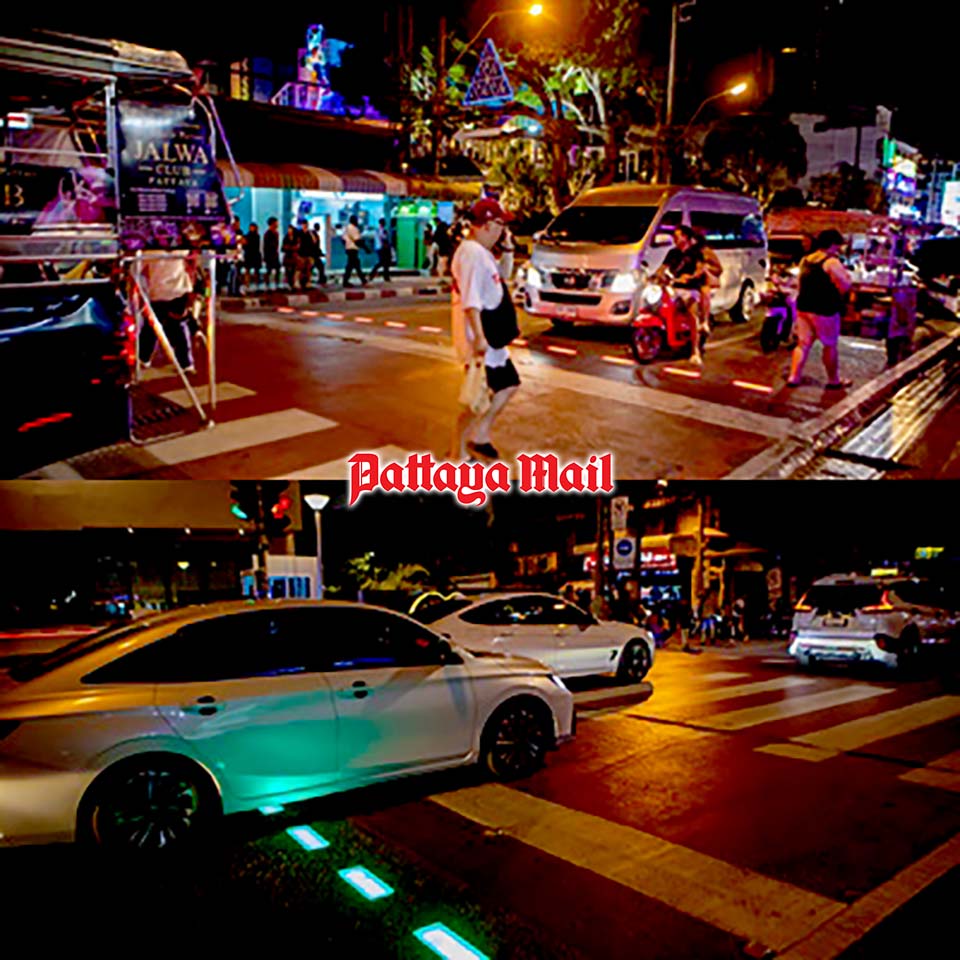 WWW.PATTAYAMAIL.COMPattaya rolls out flashing crosswalk lights in push for world-class safety, plans citywide expansionBright idea for safety — Pattaya’s new flashing crosswalk lights on beach road are earning praise from tourists and locals alike. PATTAYA, Thailand – Both Thai and international tourists expressed surprise and delight after Pattaya City began installing pedestrian crosswalk traffic lights along major roads in central Pattaya. The new system allows pedestrians to press a button to activate flashing warning lights, signaling approaching drivers to stop and allow people to cross safely. The lights are designed to be visible from a distance, giving motorists ample time to slow down. The atmosphere around the installation sites was lively, with many tourists stopping to test out the new system. Most praised the innovation, saying it enhances both safety and the image of Pattaya as a world-class tourist destination. Somphong Phurimnak, a local vendor, shared his experience: “It used to be really hard to cross the road — so many cars and no one would stop. But now, when the lights flash, drivers actually stop to let tourists pass. It’s much safer and better for everyone, locals and visitors alike.” Pattaya City also plans to expand the installation of crosswalk lights in other key tourist areas as part of an ongoing effort to improve safety standards and convenience for visitors. Stop and let them cross — Pedestrian-activated warning lights now help drivers spot people from a distance.0 ความคิดเห็น 0 เเชร์ 36 ครั้ง
WWW.PATTAYAMAIL.COMPattaya rolls out flashing crosswalk lights in push for world-class safety, plans citywide expansionBright idea for safety — Pattaya’s new flashing crosswalk lights on beach road are earning praise from tourists and locals alike. PATTAYA, Thailand – Both Thai and international tourists expressed surprise and delight after Pattaya City began installing pedestrian crosswalk traffic lights along major roads in central Pattaya. The new system allows pedestrians to press a button to activate flashing warning lights, signaling approaching drivers to stop and allow people to cross safely. The lights are designed to be visible from a distance, giving motorists ample time to slow down. The atmosphere around the installation sites was lively, with many tourists stopping to test out the new system. Most praised the innovation, saying it enhances both safety and the image of Pattaya as a world-class tourist destination. Somphong Phurimnak, a local vendor, shared his experience: “It used to be really hard to cross the road — so many cars and no one would stop. But now, when the lights flash, drivers actually stop to let tourists pass. It’s much safer and better for everyone, locals and visitors alike.” Pattaya City also plans to expand the installation of crosswalk lights in other key tourist areas as part of an ongoing effort to improve safety standards and convenience for visitors. Stop and let them cross — Pedestrian-activated warning lights now help drivers spot people from a distance.0 ความคิดเห็น 0 เเชร์ 36 ครั้ง -
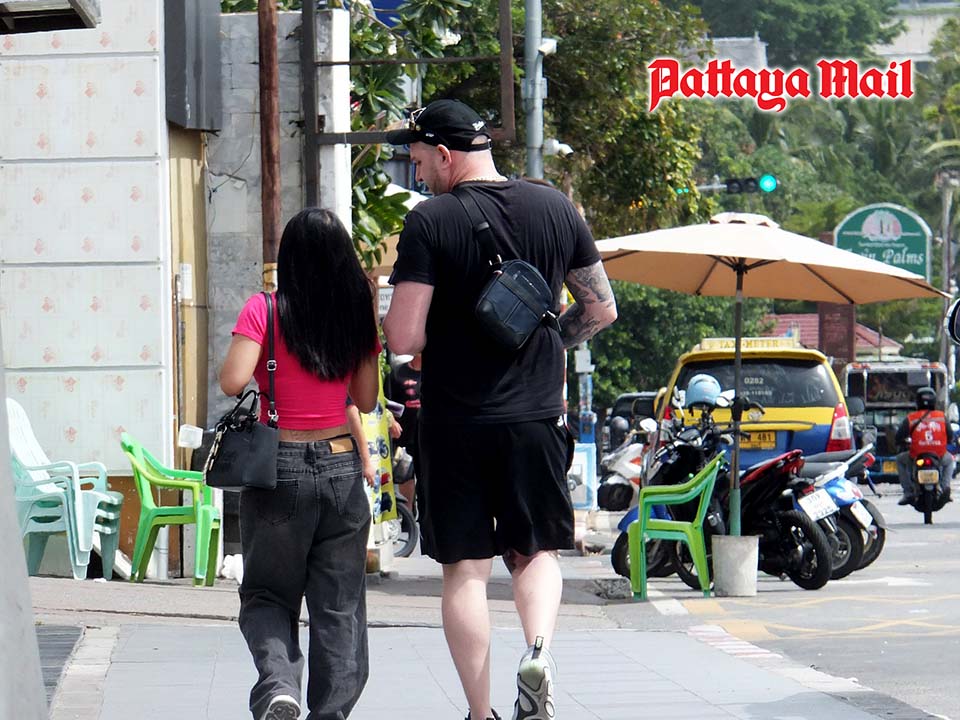 WWW.PATTAYAMAIL.COMPattaya Then and Now: The party town that grew up, or just grew old?Once a vibrant hub of lively bars, friendly faces, and simple pleasures, Pattaya today wrestles with the impact of rising costs, demographic shifts, and a digital age that’s changed how visitors connect. (Photo by Jetsada Homklin) PATTAYA, Thailand – Pattaya—once heralded as Asia’s premier beach party and nightlife destination — now faces growing questions about whether it can ever recapture its famed “golden era.” Longtime visitors and locals alike observe a city in transition, grappling with demographic shifts, rising costs, and changing tourist expectations. Many expats and tourists reminisce about the early days when Pattaya was simpler, friendlier, and more welcoming. “I remember the first time I went over 30 years ago,” one visitor recalls, “the women would give you small massages without demanding money, and the bars were filled with lively games and real interaction — none of this staring at phones nonsense.” Today, many lament how smartphones and social media have transformed nightlife into a digital, disconnected experience. “You walk into bars and staff barely look up from their screens,” says another, “it’s like coming to a ghost town compared to the past.” The city’s shifting tourist makeup also stirs mixed feelings. Pattaya’s international flavor now includes growing groups of Indian, Russian, and Chinese visitors, altering the social dynamics and local atmosphere. While some welcome the diversity, others feel the new arrivals bring changes that clash with traditional expectations. One commenter even dubbed the area “Little Bombay,” highlighting the significant presence of Indian tourists and businesses. Others see this as a consequence of government policies aimed at encouraging mass tourism from India, which some believe has overlooked the spending patterns and local sentiments of these groups. Economic factors play no small role. Visitors note that what once made Pattaya attractive—cheap flights, affordable accommodation, and low-cost entertainment—has eroded. The Thai baht’s strength, inflation, and rising prices across food, hotels, and nightlife now make the city less accessible for budget travelers. One expat points out, “Prices have gone up, Thai expectations have gone up, but foreigners’ budgets haven’t. Exchange rates and visa changes haven’t helped either.” Rising costs of living in Western countries also influence tourist behavior, shifting the demographic to retirees and wealthier travelers, but the overall vibe is less vibrant. Visa regulations and enforcement have tightened in recent years, though some argue that many complaints about visa difficulties are exaggerated. The quest for wealthier tourists has resulted in ever-changing policies, sometimes making Pattaya feel less welcoming to middle-income visitors who once formed its core. Despite the challenges, Pattaya continues to buzz with pockets of nightlife and genuine social interactions, though some say you have to look harder or steer clear of overly commercialized tourist spots. “Not all bars allow staff phones during work hours; there are still places with games and real fun,” one local assures. However, others worry that unless Pattaya adapts to modern tastes and expectations — including offering more Instagrammable, trendy venues — it risks losing relevance with younger generations who prefer more upscale, digitally connected experiences. Ultimately, the future of Pattaya hinges on balancing its rich cultural past with evolving global tourism trends. Whether it can recapture its “golden era” remains uncertain, but the city’s story continues — shaped by changing people, culture, and spending habits.0 ความคิดเห็น 0 เเชร์ 40 ครั้ง
WWW.PATTAYAMAIL.COMPattaya Then and Now: The party town that grew up, or just grew old?Once a vibrant hub of lively bars, friendly faces, and simple pleasures, Pattaya today wrestles with the impact of rising costs, demographic shifts, and a digital age that’s changed how visitors connect. (Photo by Jetsada Homklin) PATTAYA, Thailand – Pattaya—once heralded as Asia’s premier beach party and nightlife destination — now faces growing questions about whether it can ever recapture its famed “golden era.” Longtime visitors and locals alike observe a city in transition, grappling with demographic shifts, rising costs, and changing tourist expectations. Many expats and tourists reminisce about the early days when Pattaya was simpler, friendlier, and more welcoming. “I remember the first time I went over 30 years ago,” one visitor recalls, “the women would give you small massages without demanding money, and the bars were filled with lively games and real interaction — none of this staring at phones nonsense.” Today, many lament how smartphones and social media have transformed nightlife into a digital, disconnected experience. “You walk into bars and staff barely look up from their screens,” says another, “it’s like coming to a ghost town compared to the past.” The city’s shifting tourist makeup also stirs mixed feelings. Pattaya’s international flavor now includes growing groups of Indian, Russian, and Chinese visitors, altering the social dynamics and local atmosphere. While some welcome the diversity, others feel the new arrivals bring changes that clash with traditional expectations. One commenter even dubbed the area “Little Bombay,” highlighting the significant presence of Indian tourists and businesses. Others see this as a consequence of government policies aimed at encouraging mass tourism from India, which some believe has overlooked the spending patterns and local sentiments of these groups. Economic factors play no small role. Visitors note that what once made Pattaya attractive—cheap flights, affordable accommodation, and low-cost entertainment—has eroded. The Thai baht’s strength, inflation, and rising prices across food, hotels, and nightlife now make the city less accessible for budget travelers. One expat points out, “Prices have gone up, Thai expectations have gone up, but foreigners’ budgets haven’t. Exchange rates and visa changes haven’t helped either.” Rising costs of living in Western countries also influence tourist behavior, shifting the demographic to retirees and wealthier travelers, but the overall vibe is less vibrant. Visa regulations and enforcement have tightened in recent years, though some argue that many complaints about visa difficulties are exaggerated. The quest for wealthier tourists has resulted in ever-changing policies, sometimes making Pattaya feel less welcoming to middle-income visitors who once formed its core. Despite the challenges, Pattaya continues to buzz with pockets of nightlife and genuine social interactions, though some say you have to look harder or steer clear of overly commercialized tourist spots. “Not all bars allow staff phones during work hours; there are still places with games and real fun,” one local assures. However, others worry that unless Pattaya adapts to modern tastes and expectations — including offering more Instagrammable, trendy venues — it risks losing relevance with younger generations who prefer more upscale, digitally connected experiences. Ultimately, the future of Pattaya hinges on balancing its rich cultural past with evolving global tourism trends. Whether it can recapture its “golden era” remains uncertain, but the city’s story continues — shaped by changing people, culture, and spending habits.0 ความคิดเห็น 0 เเชร์ 40 ครั้ง -
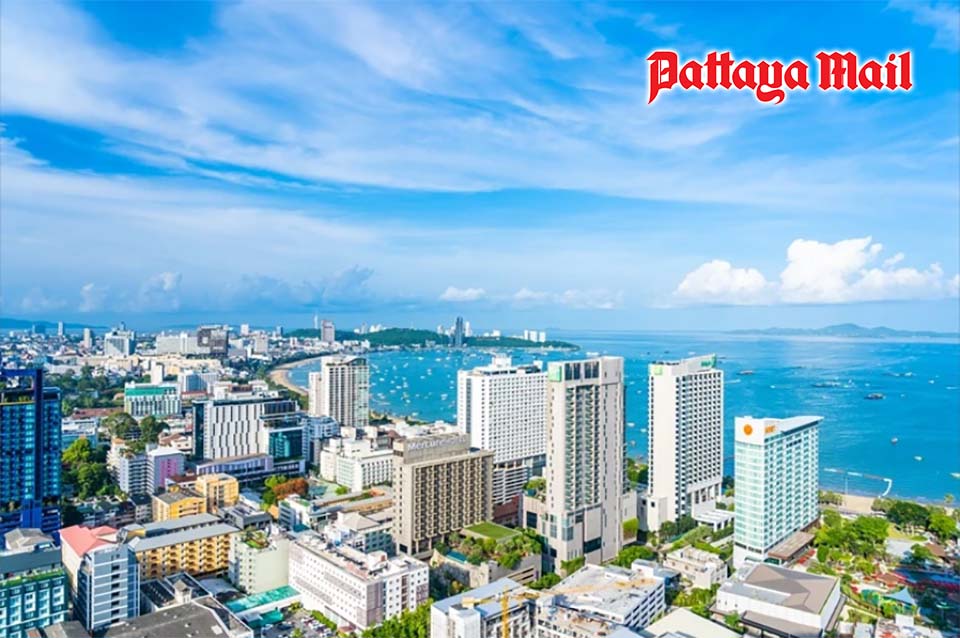 WWW.PATTAYAMAIL.COMForeigners shift toward resale and mid-range condos as Pattaya and Bangkok remain dominant marketsDespite a slight slowdown in transfers during the first quarter of 2025, demand for properties in Bangkok and Pattaya remains strong, highlighting their ongoing appeal as prime investment and long-term residence destinations for international buyers. PATTAYA, Thailand – In recent years, foreign investment—especially in condominium purchases—has been a key driver of Thailand’s real estate market. This trend accelerated after the COVID-19 pandemic, with Chinese buyers leading the surge due to their interest in long-term stays and the country’s thriving tourism sector. But recent figures from the Real Estate Information Center (REIC), under the Government Housing Bank (GH Bank), indicate a modest cooling in the market. In the first quarter of 2025, foreign condo transfers totaled 3,919 units nationwide, down 0.5% year-over-year. The total value fell by 9.0% to 16.39 billion baht, with the total area of transferred units decreasing 5% to just over 164,000 square meters. Interestingly, the share of foreign transfers in the overall condo market grew slightly. Foreigners accounted for 18.0% of all transferred units, up from 16.7% a year earlier, while their share of total transfer value rose to 29.3%, up from 28.6%. This suggests that although foreign buyers are purchasing fewer units, they are still targeting higher-value properties. Bangkok and Chonburi (home to Pattaya) remained the dominant locations for foreign condo ownership. Bangkok led with 1,695 units valued at 9.55 billion baht, while Chonburi followed with 1,309 units worth 3.8 billion baht. Together, these provinces accounted for nearly 77% of foreign unit transfers and more than 81% of the total transfer value. Chinese nationals continued to lead the pack, purchasing 1,481 units worth 6.1 billion baht, representing 37.8% of all foreign-bought units and 37.3% of total value. However, both figures were lower than the previous year. Analysts point to concerns over safety in Thailand as a key reason for the slowdown in Chinese property investment. Following China, buyers from Myanmar, Russia, Taiwan, and France made up the top five nationalities by volume. In terms of value, the United States displaced France to claim fifth place. Notably, buyers from the United Kingdom recorded the highest average condo price at 5.7 million baht per unit and the largest average unit size at 60.1 square meters, suggesting a more affluent segment of buyers. The preference for new condos slightly outweighed resale units in Q1/2025, with new projects accounting for 53% of foreign transfers. However, there was a noticeable quarter-on-quarter decline in this share, indicating a growing interest in resale properties. Foreign buyers largely focused on the lower and mid-price segments. Condominiums priced below 3 million baht accounted for over half the units transferred, though they made up only around 22% of total value. The 3–5 million baht range attracted nearly a quarter of buyers, while high-end properties priced over 10 million baht—despite representing just 7% of units—captured nearly 31% of the overall transfer value. Smaller and mid-sized units remained the most popular choices. Nearly 46% of all foreign-bought condos measured between 31 and 60 square meters, while 40% were 30 square meters or smaller. Just under 10% fell in the 61–100 square meter range, and only 4% exceeded 100 square meters. In terms of value, the 31–60 square meter category dominated with 7.2 billion baht transferred. The data confirms a clear trend: while overall numbers dipped slightly, foreign buyers—especially those seeking higher-end condos in Bangkok and Pattaya—remain a crucial force in Thailand’s real estate market. Yet concerns over safety, particularly among Chinese buyers, may continue to weigh on growth in the coming quarters.0 ความคิดเห็น 0 เเชร์ 60 ครั้ง
WWW.PATTAYAMAIL.COMForeigners shift toward resale and mid-range condos as Pattaya and Bangkok remain dominant marketsDespite a slight slowdown in transfers during the first quarter of 2025, demand for properties in Bangkok and Pattaya remains strong, highlighting their ongoing appeal as prime investment and long-term residence destinations for international buyers. PATTAYA, Thailand – In recent years, foreign investment—especially in condominium purchases—has been a key driver of Thailand’s real estate market. This trend accelerated after the COVID-19 pandemic, with Chinese buyers leading the surge due to their interest in long-term stays and the country’s thriving tourism sector. But recent figures from the Real Estate Information Center (REIC), under the Government Housing Bank (GH Bank), indicate a modest cooling in the market. In the first quarter of 2025, foreign condo transfers totaled 3,919 units nationwide, down 0.5% year-over-year. The total value fell by 9.0% to 16.39 billion baht, with the total area of transferred units decreasing 5% to just over 164,000 square meters. Interestingly, the share of foreign transfers in the overall condo market grew slightly. Foreigners accounted for 18.0% of all transferred units, up from 16.7% a year earlier, while their share of total transfer value rose to 29.3%, up from 28.6%. This suggests that although foreign buyers are purchasing fewer units, they are still targeting higher-value properties. Bangkok and Chonburi (home to Pattaya) remained the dominant locations for foreign condo ownership. Bangkok led with 1,695 units valued at 9.55 billion baht, while Chonburi followed with 1,309 units worth 3.8 billion baht. Together, these provinces accounted for nearly 77% of foreign unit transfers and more than 81% of the total transfer value. Chinese nationals continued to lead the pack, purchasing 1,481 units worth 6.1 billion baht, representing 37.8% of all foreign-bought units and 37.3% of total value. However, both figures were lower than the previous year. Analysts point to concerns over safety in Thailand as a key reason for the slowdown in Chinese property investment. Following China, buyers from Myanmar, Russia, Taiwan, and France made up the top five nationalities by volume. In terms of value, the United States displaced France to claim fifth place. Notably, buyers from the United Kingdom recorded the highest average condo price at 5.7 million baht per unit and the largest average unit size at 60.1 square meters, suggesting a more affluent segment of buyers. The preference for new condos slightly outweighed resale units in Q1/2025, with new projects accounting for 53% of foreign transfers. However, there was a noticeable quarter-on-quarter decline in this share, indicating a growing interest in resale properties. Foreign buyers largely focused on the lower and mid-price segments. Condominiums priced below 3 million baht accounted for over half the units transferred, though they made up only around 22% of total value. The 3–5 million baht range attracted nearly a quarter of buyers, while high-end properties priced over 10 million baht—despite representing just 7% of units—captured nearly 31% of the overall transfer value. Smaller and mid-sized units remained the most popular choices. Nearly 46% of all foreign-bought condos measured between 31 and 60 square meters, while 40% were 30 square meters or smaller. Just under 10% fell in the 61–100 square meter range, and only 4% exceeded 100 square meters. In terms of value, the 31–60 square meter category dominated with 7.2 billion baht transferred. The data confirms a clear trend: while overall numbers dipped slightly, foreign buyers—especially those seeking higher-end condos in Bangkok and Pattaya—remain a crucial force in Thailand’s real estate market. Yet concerns over safety, particularly among Chinese buyers, may continue to weigh on growth in the coming quarters.0 ความคิดเห็น 0 เเชร์ 60 ครั้ง -
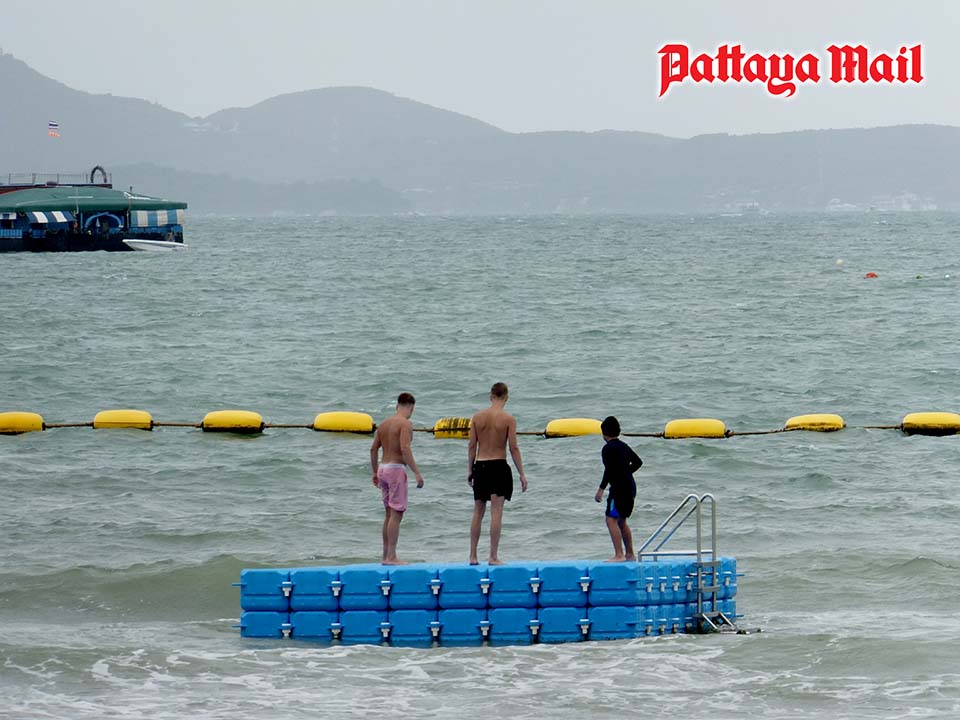 WWW.PATTAYAMAIL.COMWipha moves on, but rough seas persist in Pattaya — island trips urged with cautionWipha has passed, but strong waves still pound Pattaya’s shores, prompting warnings for beachgoers and boat operators. (Photo by Jetsada Homklin) PATTAYA, Thailand – Although Tropical Storm Wipha has moved out of the region, its impact continues to be felt along Pattaya’s coast, where strong waves and unsettled seas remain a concern. Beachgoers and tour operators report choppy waters and high surf, particularly in the early morning and late afternoon hours. Local authorities have not issued a full ban on island excursions to Koh Larn and other nearby destinations, but are urging operators and tourists alike to proceed with heightened caution. Small boats and speedboats are being advised to assess weather updates carefully before departure. Several tour companies have temporarily scaled back or postponed their services due to safety concerns, especially for elderly passengers and families with children. Lifeguards have increased monitoring along Pattaya Beach and Jomtien, while red flags have been spotted in some high-risk swimming areas. “Even though the storm is gone, the sea hasn’t fully calmed,” one lifeguard said. “We’re asking swimmers not to go too far out and to stay alert for changing conditions.” While the skies have mostly cleared, the lingering waves are a reminder that nature’s aftershocks don’t always disappear with the storm itself. Officials recommend that anyone planning a boat trip this week consult with the Marine Department weather bulletins and check in with local operators before setting off. Pattaya City Hall is urging residents and tourists to remain cautious and report any weather-related hazards by calling the 1337 Call Center, available 24 hours a day. The hotline serves as a direct channel for the public to notify authorities about flooding, fallen trees, damaged infrastructure, or unsafe sea conditions.0 ความคิดเห็น 0 เเชร์ 66 ครั้ง
WWW.PATTAYAMAIL.COMWipha moves on, but rough seas persist in Pattaya — island trips urged with cautionWipha has passed, but strong waves still pound Pattaya’s shores, prompting warnings for beachgoers and boat operators. (Photo by Jetsada Homklin) PATTAYA, Thailand – Although Tropical Storm Wipha has moved out of the region, its impact continues to be felt along Pattaya’s coast, where strong waves and unsettled seas remain a concern. Beachgoers and tour operators report choppy waters and high surf, particularly in the early morning and late afternoon hours. Local authorities have not issued a full ban on island excursions to Koh Larn and other nearby destinations, but are urging operators and tourists alike to proceed with heightened caution. Small boats and speedboats are being advised to assess weather updates carefully before departure. Several tour companies have temporarily scaled back or postponed their services due to safety concerns, especially for elderly passengers and families with children. Lifeguards have increased monitoring along Pattaya Beach and Jomtien, while red flags have been spotted in some high-risk swimming areas. “Even though the storm is gone, the sea hasn’t fully calmed,” one lifeguard said. “We’re asking swimmers not to go too far out and to stay alert for changing conditions.” While the skies have mostly cleared, the lingering waves are a reminder that nature’s aftershocks don’t always disappear with the storm itself. Officials recommend that anyone planning a boat trip this week consult with the Marine Department weather bulletins and check in with local operators before setting off. Pattaya City Hall is urging residents and tourists to remain cautious and report any weather-related hazards by calling the 1337 Call Center, available 24 hours a day. The hotline serves as a direct channel for the public to notify authorities about flooding, fallen trees, damaged infrastructure, or unsafe sea conditions.0 ความคิดเห็น 0 เเชร์ 66 ครั้ง -
 WWW.PATTAYAMAIL.COMPattaya hotels launch ‘Thai Price’ promotions as frustration grows over co-pay subsidy programBooking behavior shift: With 70–80% of travelers now booking via Agoda and similar apps, hotels say state programs must modernize to stay relevant. (Photo by Jetsada Homklin) PATTAYA, Thailand – Hotels across Thailand are growing impatient with the government’s “Travel Thailand Half-Half” or co-pay stimulus scheme, citing ongoing technical issues, slow user uptake, and financial uncertainty. Many are now ditching the program in favor of direct “Thai Price” campaigns to attract domestic tourists during the low season. The much-anticipated “Travel Thailand Half-Half” campaign, launched on July 1 as part of the government’s low-season tourism stimulus (July–October 2025), aimed to encourage domestic travel by subsidizing 40–50% of accommodation costs. However, 20 days into the program, results have fallen well short of expectations. Slow Uptake, Ongoing Technical Glitches According to major hotel operators, the rollout has been plagued by unstable registration and booking systems, which have caused daily frustrations since launch. Many travelers have been unable to book rooms or complete payments. Notably, the system only accepts cash payments, excluding card transactions entirely, making the process even more cumbersome. Thienprasit Chaipatranand, President of the Thai Hotels Association (THA), said the program’s instability and ever-changing conditions have made many hotels wary of participating. “Hotels are facing new problems every day — unclear rules, glitches in booking, payment issues, and frequent changes by the Tourism Authority of Thailand (TAT). We worry we won’t be able to claim reimbursement from the government, even if guests have booked under the scheme.” Due to these complications, a number of hotels have temporarily suspended their participation in the program until the system becomes more reliable. “We’d rather pause than risk losing money trying to claim reimbursements that may never come through,” said one hotelier. Additionally, THA criticized the limited budget — only around 300–400 million baht per month — saying it’s insufficient to drive meaningful growth in occupancy or stimulate real domestic travel demand. Hotels Shift to ‘Thai Price’ Campaigns Instead Reporters found that hotels in popular destinations — including Pattaya (Chonburi), Rayong, Koh Samui (Surat Thani), and Khao Yai (Nakhon Ratchasima) — are now preparing alternative “Thai Price” promotions aimed directly at Thai tourists. While slightly more expensive than the subsidized rates under the government scheme, these offers promise simplicity and convenience — factors that today’s consumers value more. A hotel manager in Surat Thani noted that while they had lowered rates in anticipation of bookings through the government program, results were disappointing. “We plan to launch a direct promotion for Thais. It might be a few hundred baht more than the government discount, but it’s more straightforward and still attractive to price-conscious travelers.” The tourism sector is also preparing to roll out high-season promotions at the upcoming 75th Thai Tiew Thai travel expo, scheduled for August 21–24 at the Queen Sirikit National Convention Center. Thienprasit says ongoing glitches and shifting rules in the government’s travel subsidy program have shaken hotel operators’ confidence nationwide. Most Tourists Book via Apps, Not Government Programs Hotels in multiple regions — including Pattaya, Rayong, Samui, and Khao Yai — report that most bookings now come from third-party apps like Agoda and Booking.com rather than government-sponsored schemes. According to a hotelier in Hua Hin, 70–80% of guests book via apps, as platform deals are often cheaper than state-subsidized prices. “Even with the 500-baht travel coupons from the government, the app prices are still more appealing. Travelers prioritize convenience and value — they’d rather skip the red tape and just book the easiest way.” This pattern signals a shift in tourist behavior, favoring direct digital booking and clear price advantages over complex state schemes. Hotel operators are calling on the government to take these preferences into account when designing future stimulus programs. Chonburi, Prachuap, and Phetchaburi Top Popularity Charts As of 9:00 a.m. on July 19, TAT reported: – 1.86 million people registered successfully. – Only 193,797 travel entitlements were used. – 306,203 entitlements remain unclaimed. – Over 3,500 hotels, 2,400 restaurants, and 90 attractions joined the program. Among the top destinations used under the scheme: Chonburi (Pattaya) Prachuap Khiri Khan Phetchaburi Nakhon Ratchasima Kanchanaburi Bangkok Chiang Mai Rayong Chanthaburi Trat The program still has around 50% of its 500,000 entitlements available, prompting officials to encourage more people to register and take advantage of discounted travel. Tourism Minister Urges Public to Use the Remaining Quota Tourism and Sports Minister Sorawong Thienthong reiterated the government’s commitment to tourism revival, stating: “This is a great opportunity for Thais to travel affordably and support local economies. The remaining entitlements should be used before they expire.” To expand the impact, the ministry has coordinated with other agencies to simplify the process and plans to roll out six more major tourism stimulus projects, backed by a 3.96 billion baht budget, pending final approval. These include: Thailand Summer Blast – China & Overseas Market Stimulus Plan (750 million baht) Thai tourism campaigns with online booking platforms (OTAs) (800 million baht) Image-building with celebrity endorsements (300 million baht) Public relations campaigns for the Thai tourism industry (120 million baht) Promotions targeting high-potential traveler groups (80 million baht) Stimulus programs for key cities and emerging destinations, including Chiang Mai–Lamphun Night Market (150 million baht)0 ความคิดเห็น 0 เเชร์ 100 ครั้ง
WWW.PATTAYAMAIL.COMPattaya hotels launch ‘Thai Price’ promotions as frustration grows over co-pay subsidy programBooking behavior shift: With 70–80% of travelers now booking via Agoda and similar apps, hotels say state programs must modernize to stay relevant. (Photo by Jetsada Homklin) PATTAYA, Thailand – Hotels across Thailand are growing impatient with the government’s “Travel Thailand Half-Half” or co-pay stimulus scheme, citing ongoing technical issues, slow user uptake, and financial uncertainty. Many are now ditching the program in favor of direct “Thai Price” campaigns to attract domestic tourists during the low season. The much-anticipated “Travel Thailand Half-Half” campaign, launched on July 1 as part of the government’s low-season tourism stimulus (July–October 2025), aimed to encourage domestic travel by subsidizing 40–50% of accommodation costs. However, 20 days into the program, results have fallen well short of expectations. Slow Uptake, Ongoing Technical Glitches According to major hotel operators, the rollout has been plagued by unstable registration and booking systems, which have caused daily frustrations since launch. Many travelers have been unable to book rooms or complete payments. Notably, the system only accepts cash payments, excluding card transactions entirely, making the process even more cumbersome. Thienprasit Chaipatranand, President of the Thai Hotels Association (THA), said the program’s instability and ever-changing conditions have made many hotels wary of participating. “Hotels are facing new problems every day — unclear rules, glitches in booking, payment issues, and frequent changes by the Tourism Authority of Thailand (TAT). We worry we won’t be able to claim reimbursement from the government, even if guests have booked under the scheme.” Due to these complications, a number of hotels have temporarily suspended their participation in the program until the system becomes more reliable. “We’d rather pause than risk losing money trying to claim reimbursements that may never come through,” said one hotelier. Additionally, THA criticized the limited budget — only around 300–400 million baht per month — saying it’s insufficient to drive meaningful growth in occupancy or stimulate real domestic travel demand. Hotels Shift to ‘Thai Price’ Campaigns Instead Reporters found that hotels in popular destinations — including Pattaya (Chonburi), Rayong, Koh Samui (Surat Thani), and Khao Yai (Nakhon Ratchasima) — are now preparing alternative “Thai Price” promotions aimed directly at Thai tourists. While slightly more expensive than the subsidized rates under the government scheme, these offers promise simplicity and convenience — factors that today’s consumers value more. A hotel manager in Surat Thani noted that while they had lowered rates in anticipation of bookings through the government program, results were disappointing. “We plan to launch a direct promotion for Thais. It might be a few hundred baht more than the government discount, but it’s more straightforward and still attractive to price-conscious travelers.” The tourism sector is also preparing to roll out high-season promotions at the upcoming 75th Thai Tiew Thai travel expo, scheduled for August 21–24 at the Queen Sirikit National Convention Center. Thienprasit says ongoing glitches and shifting rules in the government’s travel subsidy program have shaken hotel operators’ confidence nationwide. Most Tourists Book via Apps, Not Government Programs Hotels in multiple regions — including Pattaya, Rayong, Samui, and Khao Yai — report that most bookings now come from third-party apps like Agoda and Booking.com rather than government-sponsored schemes. According to a hotelier in Hua Hin, 70–80% of guests book via apps, as platform deals are often cheaper than state-subsidized prices. “Even with the 500-baht travel coupons from the government, the app prices are still more appealing. Travelers prioritize convenience and value — they’d rather skip the red tape and just book the easiest way.” This pattern signals a shift in tourist behavior, favoring direct digital booking and clear price advantages over complex state schemes. Hotel operators are calling on the government to take these preferences into account when designing future stimulus programs. Chonburi, Prachuap, and Phetchaburi Top Popularity Charts As of 9:00 a.m. on July 19, TAT reported: – 1.86 million people registered successfully. – Only 193,797 travel entitlements were used. – 306,203 entitlements remain unclaimed. – Over 3,500 hotels, 2,400 restaurants, and 90 attractions joined the program. Among the top destinations used under the scheme: Chonburi (Pattaya) Prachuap Khiri Khan Phetchaburi Nakhon Ratchasima Kanchanaburi Bangkok Chiang Mai Rayong Chanthaburi Trat The program still has around 50% of its 500,000 entitlements available, prompting officials to encourage more people to register and take advantage of discounted travel. Tourism Minister Urges Public to Use the Remaining Quota Tourism and Sports Minister Sorawong Thienthong reiterated the government’s commitment to tourism revival, stating: “This is a great opportunity for Thais to travel affordably and support local economies. The remaining entitlements should be used before they expire.” To expand the impact, the ministry has coordinated with other agencies to simplify the process and plans to roll out six more major tourism stimulus projects, backed by a 3.96 billion baht budget, pending final approval. These include: Thailand Summer Blast – China & Overseas Market Stimulus Plan (750 million baht) Thai tourism campaigns with online booking platforms (OTAs) (800 million baht) Image-building with celebrity endorsements (300 million baht) Public relations campaigns for the Thai tourism industry (120 million baht) Promotions targeting high-potential traveler groups (80 million baht) Stimulus programs for key cities and emerging destinations, including Chiang Mai–Lamphun Night Market (150 million baht)0 ความคิดเห็น 0 เเชร์ 100 ครั้ง



